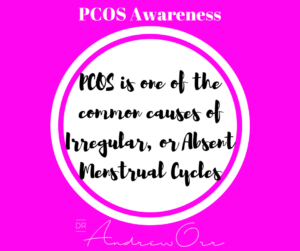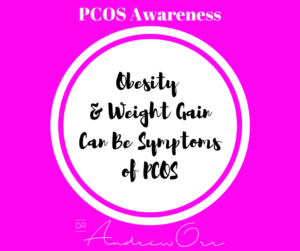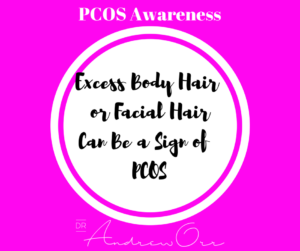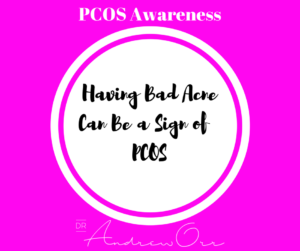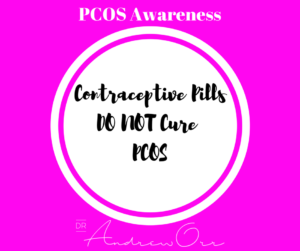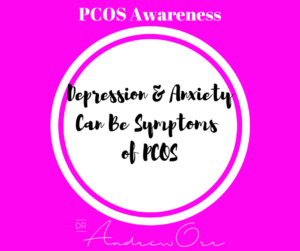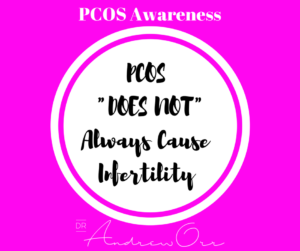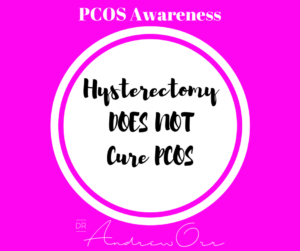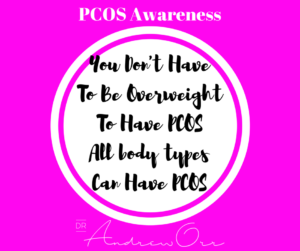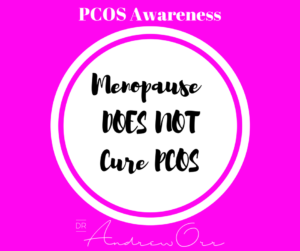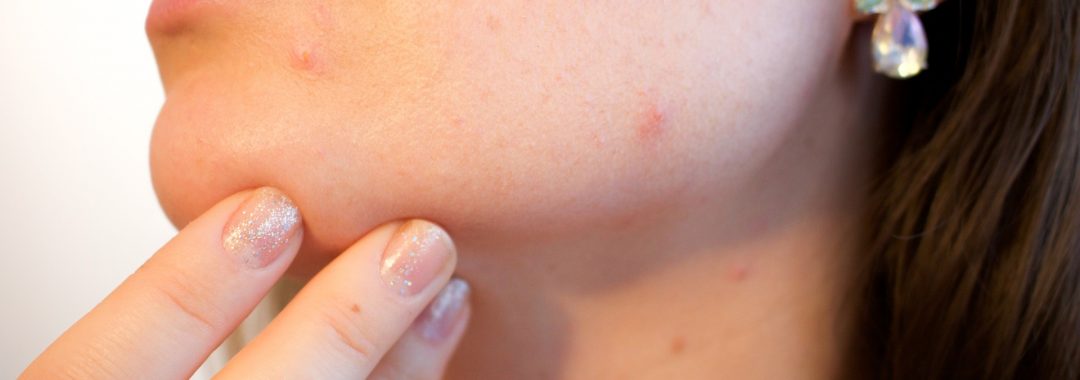Just like endometriosis, there is a lot of the information about PCOS, but it is more about the symptoms, time to diagnosis and future fertility outcomes.
While it is necessary to educate people about these things, nobody is really talking about the serious health complications of unmanaged PCOS.
There have been some big changes to the diagnosis of PCOS, but still it can often take up to 3 years or more to get a proper diagnosis. While it may not take as long as endometriosis to be diagnosed, it still means that many women are being missed and dismissed in those year before they are finally diagnosed.
Like Endometriosis, some women with PCOS are never diagnosed and some women do not have any symptoms and can have very regular cycles etc. Women can have PCOS and endometriosis together, alongside other issues such as adenomyosis as well.
There are serious health consequences with unmanaged PCOS
The main thing I am trying to bring to everyone’s attention is that it doesn’t matter what disease you have, if it is left unmanaged, or not managed properly, it can have some pretty serious consequences of ones fertility, and mental and physical health.
PCOS is not exception. While the symptoms of PCOS are not as bad as those suffered with endometriosis, or adenomyosis, women can still suffer in many other ways. The long-term consequences of unmanaged PCOS can be very serious and can also lead to early death (cardiovascular disease, stroke etc.) and also lead to certain cancers.
Risk factors
PCOS is thought to have a genetic component. People who have a mother or sister with PCOS are more likely to develop PCOS than someone whose relatives do not have the condition. This family link is the main risk factor.
Then there is the insulin resistance factor with PCOS as well. Insulin resistance is a primary driver of PCOS and there is now evidence to show that most, if not all, women with PCOS have insulin resistance by default. Again this appears to be through genetic or family links of someone having PCOS, or having diabetes in the family tree etc.
Excess insulin is thought to affect a woman’s ability to ovulate because of its effect on androgen production. Research has shown that women with PCOS have low-grade inflammation that stimulates polycystic ovaries to produce androgens.
This is why diet and lifestyle interventions are so important in the overall management of PCOS. It is because these changes help with the insulin resistance.
There are other risk factors such as obesity, stress, nutritional deficiencies and sedentary lifestyle. Have a look at my page about more information on PCOS and risk factors etc (Click Here)
The Common Symptoms of PCOS
It is important to know what the common symptoms of PCOS are, so that women and healthcare professionals alike know what to look for.
The common symptoms of PCOS include:
- irregular menses
- excess androgen levels
- acne, oily skin, and dandruff
- excessive facial and body hair growth, known as Hirsutism
- female pattern balding
- skin tags
- acanthosis nigricans, or dark patches of skin
- sleep apnea
- high stress levels
- depression and anxiety
- high blood pressure
- infertility
- Increased risk of miscarriage
- decreased libido
- high cholesterol and triglycerides
- fatigue
- insulin resistance
- type 2 diabetes
- pelvic pain
- weight management difficulties including weight gain or difficulty losing weight
Early Intervention and management is crucial
The causes of PCOS are unclear, but early intervention, early diagnosis and early management, can help relieve symptoms and reduce the risk of complications. Anyone who may have symptoms of PCOS should see their healthcare provider, women’s healthcare specialist, or PCOS expert.
Coping with the symptoms of PCOS and managing the treatments can be demanding ands sometimes stressful. But, to then learn there can be serious complications and added risks to your health from PCOS not being managed properly can be distressing.
Be educated and get proper help
Just like any disease state just being aware, and being educated there are added risks is an important first step. Once you have the common symptoms of PCOS under control then you can turn your mind to thinking about ways to prevent further complications. The good news is that many of the treatments and management strategies you will use for your PCOS will also help to prevent many of the serious complications. A qualified healthcare professional, or a healthcare practitioner who is an expert in PCOS should be managing anyone with PCOS. Nobody should be trying to manage PCOS on their own without some form of professional help.
The serious complications of PCOS
Women with PCOS are thought to be at higher risk of having future heart disease or stroke. They are also at higher risk of diabetes, endometrial cancer and other cancers too.
What are the serious complications of unmanaged PCOS?
Besides the risk factors already mentioned, the serious complications of unmanaged PCOS are as follows:
- Weight gain or obesity
- Prediabetes
- Type 2 diabetes
- Cardiovascular disease
- Metabolic syndrome (generally having at least two of high blood pressure, high cholesterol, obesity, high fasting blood glucose)
- Endometrial cancer
- Other cancers (breast, ovarian)
- Sleep apnoea
- Inflammation of the liver
- Infertility
- Increased Pregnancy induced hypertension and pre-eclampsia
- Increased gestational diabetes
- Increased risk of stroke
- Increased risk of sudden death
- Atherosclerosis
- Psychological disorders
- Mood disorders (anxiety, depression)
What you can do
If you are worried about the serious complications of unmanaged PCOS it is helpful to:
- Get your symptoms of PCOS under control as a first step
- Discuss any concerns with your healthcare practitioner, or women’s health/PCOS expert.
- Learn about and understand your risks
- Learn that early intervention and early healthcare management is the key to assisting any disease state.
- Have your blood pressure, blood glucose and cholesterol checked regularly
- Seek guidance and support to help with weight management and dietary and lifestyle management.
- Remember that all body types can have PCOS, not just those who are overweight.
- Do not try to manage the symptoms of PCOS on your own.
Final word
If you do need assistance with PCOS and would like my help, please call my friendly staff and found out how I may be able to assist you. There are options for online consultations and consultations in person.
As mentioned before the key to any disease is early intervention and early healthcare management and you taking the first steps to get the help you need. PCOS also needs a multimodality approach. There are many facets to it. Don’t put off your health. Just pick up the phone and make that appointment today. There can be some very serious consequences if you do, especially for some conditions such and PCOS.
Regards
Andrew Orr
-No Stone Left Unturned
-Master of Women’s Health Medicines
-The PCOS Experts
References
-
Ehrmann D et al. Prevalence and predictors of the metabolic syndrome in women with polycystic ovary syndrome. J Clin Endocrinol Metab. 2006 Jan;91(1):48-53
-
Meyer C et al. Overweight women with polycystic ovary syndrome have evidence of subclinical cardiovascular disease. J Clin Endocrinol Metab. 2005 Oct;90(10):5711-6
-
McCartney CR, Marshall JC. Polycystic Ovary Syndrome. N Engl J Med 2016;375:54-64
-
Hull MG. Epidemiology of infertility and polycystic ovarian disease: endocrinological and demographic studies. Gynecol Endocrinol. 1987;1:235–245. [PubMed] [Google Scholar]
-
Balen AH, Conway GS, Kaltsas G, et al. Polycystic ovary syndrome: the spectrum of the disorder in 1741 patients. Hum Reprod. 1995;10:2107–2111. [PubMed] [Google Scholar]
-
Tian L, Shen H, Lu Q, Norman RJ, Wang J. Insulin resistance increases the risk of spontaneous abortion after assisted reproduction technology treatment. J Clin Endocrinol Metab. 2007;92(4):1430–1433. [PubMed] [Google Scholar]
-
Jungheim ES, Lanzendorf SE, Odem RR, Moley KH, Chang AS, Ratts VS. Morbid obesity is associated with lower clinical pregnancy rates after in vitro fertilization in women with polycystic ovary syndrome. Fertil Steril. 2009;92(1):256–261. [PMC free article] [PubMed] [Google Scholar]
-
Rotterdam ESHRE/ASRM-Sponsored PCOS Consensus Workshop Group Revised 2003 consensus on diagnostic criteria and long-term health risks related to polycystic ovary syndrome. Fertil Steril. 2004;81(1):19–25. [PubMed] [Google Scholar]
-
Palomba S, de Wilde MA, Falbo A, Koster MPH, La Sala GB, Fauser CJM. Pregnancy complications in women with polycystic ovary syndrome: new clinical and pathophysiological insights. Hum Reprod Update. 2015 Jun 27;:dmv029. [PubMed] [Google Scholar]
-
Anderson SA, Barry JA, Hardiman PJ. Risk of coronary heart disease and risk of stroke in women with polycystic ovary syndrome: a systematic review and meta-analysis. Int J Cardiol. 2014;176(2):486–487. [PubMed] [Google Scholar]
-
Hardiman P, Pillay OC, Atiomo W. Polycystic ovary syndrome and endometrial carcinoma. Lancet. 2003;361(9371):1810–1812. [PubMed] [Google Scholar]
-
Genazzani AR, Gadducci A, Gambacciani M. Controversial issues in climacteric medicine II. Hormone replacement therapy and cancer. International Menopause Society Expert Workshop. Climacteric. 2001;4(3):181–193. [PubMed] [Google Scholar]
-
Barry JA, Azizia MM, Hardiman PJ. Risk of endometrial, ovarian and breast cancer in women with polycystic ovary syndrome: a systematic review and meta-analysis. Hum Reprod Update. 2014;20(5):748–758. [PMC free article] [PubMed] [Google Scholar]
-
Broekmans FJ, Knauff EAH, Valkenburg O, Laven JS, Eijkemans MJ, Fauser BCJM. PCOS according to the Rotterdam consensus criteria: change in prevalence among WHO-II anovulation and association with metabolic factors. BJOG. 2006;113(10):1210–1217. [PubMed] [Google Scholar]
-
Haoula Z, Salman M, Atiomo W. Evaluating the association between endometrial cancer and polycystic ovary syndrome. Hum Reprod. 2012;27(5):1327–1331. [PubMed] [Google Scholar]
-
Chittenden BG, Fullerton G, Maheshwari A, Bhattacharya S. Polycystic ovary syndrome and the risk of gynaecological cancer: a systematic review. Reprod Biomed Online. 2009;19(3):398–405. [PubMed] [Google Scholar]
-
Giovannucci E. Metabolic syndrome, hyperinsulinemia, and colon cancer: a review. Am J Clin Nutr. 2007;86(3):s836–s842. [PubMed] [Google Scholar]



